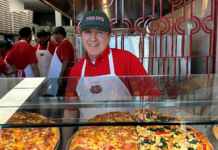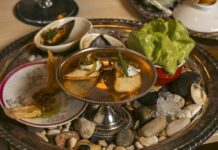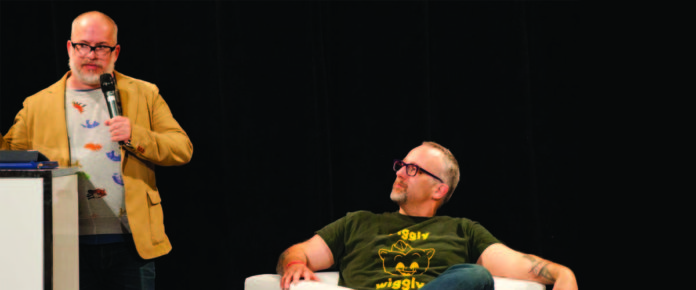TORONTO — Dugnad, a Norwegian word defined as solving a task through the collective efforts of a community, while giving more and taking less, was woven through the fabric of conversation yesterday during Toronto’s Terroir Symposium, where artisans, chefs and food writers discussed different ways they strive to become servants of place and people, while taking risks and pioneering change.
“I’m going to talk about people,” began Jair Téllez, from the stage at Toronto’s Arcadian Court. After working through the kitchens of New York City, the entrepreneur found success moving to Mexico and opening Laja, a restaurant and orchard, in the Guadalupe Valley. “There is a saying in Mexico that workers will pretend to work, and owners will pretend to pay. I wanted to change that,” he said. He staffed the restaurant with a team of locals (some of which couldn’t read or write), earned their trust and paid them fair wages.
Another way to serve the community is to recognize its suppliers. When Sarah Weiner, founder of The Good Food Awards in San Francisco, discovered jars of preserves with award-winner stickers were flying off shelves, it sparked an idea. She created The Good Food Awards, which shines the spotlight on producers and drives their sales. “Slow, modest growth, and a company that can sustain and nourish its staff is our goal,” she told the audience.
Other speakers talked about different food issues. Mark Schatzker, author of The Dorito Effect, explained the troubling problem with flavour enhancements. Now, everything from soy milk to children’s yogurt tubes contain artificial flavours without any of the nutritional benefit. “Your brain senses you are getting the nutrition, but your stomach gets nothing. We need to stop feeding the brain and start feeding the stomach,” he emphasized.
Feeding the nation is also about preserving the ocean’s bounty. It’s a problem Ned Bell, chef at Yew Seafood + Bar in Vancouver, has been tackling with his Chefs for Oceans initiative, which promotes sustainable seafood. Foodservice operators need to educate consumers about demanding more sustainable options at the grocery level while agreeing to pay higher costs. After all, the retail stores need to buy into sustainability to create greater overall change, asserted the chef. “We’re addicted to cheap in North America. I want to give value to the catch, to the fisherman and to the customer.” When it comes to preserving fish when it’s caught, science is on our side, explained Antonio Park, chef-owner of Restaurant Park in Montreal, who demonstrated how nanotechnology is helping to preserve fish’s shelf life by removing oxygen from the water.
While technology is creating boundless opportunities, other speakers have found success in living off the grid. Spearfisher Kimi Werner craved the simple life after working as a chef in the city. “Fish was just a rectangle piece on Styrofoam trays — I had no idea where it came from,” she said, abandoning the concrete jungle for a career catching her food by hand.
Spearfishing is a risky endeavor, but it was potentially not as risky as travelling through the Bible Belt at the helm of a food truck called Big Gay Ice Cream truck. Partners Douglas Quint and Bryan Petroff embarked on a five-city tour through the U.S., which attracted two-hour line-ups. “We’ve gone looking for trouble, yet we never seem to find it,” said Quint.
Meanwhile, members of the symposium were celebrated during the event. Antonio Park took home the Outstanding Chef Award; he was fêted along with Tobey Nemeth, founder of Edulis in Toronto (Outstanding Service Professional) and Norm Hardie of Norman Hardie Vineyard and Winery in Price Edward County, Ont. (Beverage Professional).

















